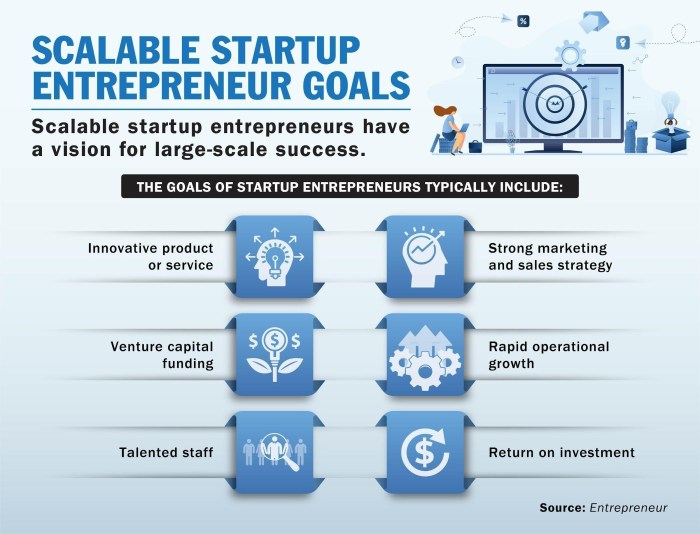
Startup valuation methods are vital for understanding the worth of a business and play a crucial role throughout its lifecycle. Valuation is influenced by various factors such as market conditions, financial performance, and potential for growth. This process not only shapes investment decisions but also impacts funding opportunities, making it essential knowledge for entrepreneurs and investors alike.
In this discussion, we will dive into the various methods employed to evaluate startups and how innovations, management practices, and external factors can affect their valuation. By exploring real-world examples and industry insights, we aim to equip readers with a comprehensive understanding of startup valuation methodologies and their implications.
Startup Valuation Methods Overview
Valuation is a crucial aspect of the startup lifecycle as it determines how much a business is worth at any given point. Understanding the valuation of a startup is not just important for entrepreneurs but also for investors and stakeholders who are keen on the potential return on their investment. Several factors can influence a startup’s valuation, including market conditions, competition, and the startup’s financial health.
Valuation can significantly affect funding rounds, as a higher valuation may attract more investors while a lower one can lead to challenges in securing sufficient capital.
Factors Influencing Valuation
Various elements can impact a startup’s valuation, including:
- Market Demand: The appetite for the product or service in the market plays a critical role in valuation.
- Revenue Streams: Established revenue channels significantly boost a startup’s perceived value.
- Management Team: A strong, experienced team can enhance investor confidence, thereby increasing valuation.
- Intellectual Property: Patents and proprietary technology can add substantial value.
- Growth Potential: High growth potential often correlates with higher valuations as investors bet on future performance.
Common Valuation Methods
There are several methods used to value startups, each with its approach and application. Understanding these methods helps entrepreneurs and investors determine fair valuations.
Discounted Cash Flow (DCF) Method
The Discounted Cash Flow (DCF) method involves forecasting the future cash flows a startup is expected to generate and discounting them back to their present value. This method is highly analytical and requires a deep understanding of the business’s earnings potential.
Market Comparables Method
The Market Comparables method involves comparing the startup to similar businesses in the same industry. By examining the valuation multiples of these comparable companies, stakeholders can estimate a fair market value for the startup. For example, if similar tech startups are valued at 5x their revenue, the startup in question can be valued similarly.
Cost-to-Duplicate Approach
This method estimates what it would cost to replicate the startup’s assets and operations. It includes tangible and intangible assets and is particularly relevant for startups with significant proprietary technology or intellectual property.
Precedent Transactions Method
The Precedent Transactions method looks at recent acquisitions or investments in similar startups to gauge valuation. For instance, if a competitor was acquired for $10 million, it sets a benchmark for valuing similar startups.
Business Innovation and Its Impact on Valuation
Innovative business models can significantly enhance a startup’s valuation. By introducing unique solutions to existing problems, startups can capture a larger market share and increase their perceived value.
Examples of Innovation in Startups
Startups like Airbnb and Uber have demonstrated how innovation can lead to impressive valuations. Their disruptive models challenged traditional industries and offered consumers new experiences, which significantly boosted their worth.
Intellectual Property Contribution
Patents and intellectual property can substantially contribute to higher valuations. Startups that hold unique patents can leverage this to negotiate better funding terms, as these assets provide a competitive advantage.
Role of Venture Capital in Startup Valuation
Venture capitalists play a critical role in assessing and influencing startup valuations. Their involvement often hinges on perceived risk and potential return.
Assessment of Startup Value
Venture capitalists examine multiple factors, including market opportunity, product viability, and team expertise, to determine a startup’s value. They often rely on their experience and market knowledge to make informed decisions.
Negotiation Tactics in Funding Rounds
During funding rounds, venture capitalists may use various negotiation tactics to secure favorable terms. They might leverage competition among investors or emphasize the startup’s growth metrics to justify their valuation demands.
Impact of Funding on Growth Trajectory
Venture capital funding can accelerate a startup’s growth trajectory significantly. With the right financial backing, startups can enhance product development, expand marketing efforts, and scale operations, directly impacting their valuation.
International Business Considerations in Valuation
Global markets play a significant role in shaping startup valuations, especially for those looking to scale internationally.
Global Market Effects
Startups aiming for international expansion often see their valuations influenced by global demand. For example, a product that resonates well in one market might face different challenges in another, impacting its overall valuation.
Challenges in International Valuation
Startups venturing into international markets may face hurdles such as currency fluctuations, regulatory differences, and cultural variations that can complicate their valuation processes.
Successful International Startups
Companies like Spotify and Alibaba have successfully navigated international markets, employing strategic valuation methods that account for diverse market conditions, which helped them achieve substantial growth and valuation.
Business Management Practices Related to Valuation
Effective management practices can greatly influence a startup’s valuation. Investors often look for strong governance and operational excellence as indicators of potential success.
Influence of Management Practices
Successful management practices ensure that a startup operates efficiently, thereby boosting its valuation. Clear objectives, accountability, and performance metrics are essential for maintaining investor confidence.
Importance of Financial Transparency
Transparency in financial reporting plays a vital role in the valuation process. Startups that provide clear and accurate financial statements foster trust with potential investors, often leading to better valuation outcomes.
Best Practices in Startup Management
- Establish clear financial reporting processes.
- Set measurable performance objectives.
- Regularly review and adjust business strategies based on market feedback.
- Maintain open communication with stakeholders.
Marketing Direct Strategies and Valuation

Direct marketing strategies can enhance a startup’s value by effectively reaching target customers and improving sales metrics.
Customer Acquisition Costs
There is a strong correlation between customer acquisition costs (CAC) and a startup’s valuation. Lower CAC can indicate a more efficient marketing strategy, making the startup more attractive to investors.
Case Studies of Successful Marketing
Startups like Dollar Shave Club leveraged direct marketing strategies to disrupt the market and increase their valuation. Their viral marketing campaigns not only attracted customers but also garnered significant investor interest.
Business Networking and Valuation
Networking plays a critical role in increasing a startup’s valuation by building valuable relationships and opportunities.
Networking Strategies for Higher Valuations
Startups can adopt several networking strategies to enhance their valuation. These include participating in industry events, leveraging social media, and collaborating with other businesses.
Effective Networking Framework
A structured framework for effective networking may involve:
- Identifying key industry events and conferences.
- Building relationships with investors and mentors.
- Utilizing online platforms to showcase products and connect with potential partners.
Risk Management and Its Effect on Valuation
Risk management is pivotal for startups looking to improve their valuation. Identifying and mitigating risks can enhance investor confidence.
Mitigating Risks to Improve Valuation
Startups can employ various strategies to mitigate risks, such as diversifying revenue streams, implementing robust compliance measures, and conducting regular market analyses.
Risk Assessment Techniques
Effective risk assessment techniques involve:
- SWOT analysis to identify strengths, weaknesses, opportunities, and threats.
- Scenario planning to prepare for potential market changes.
- Regular financial health check-ups to identify vulnerabilities.
Examples of Successful Risk Management
Companies like Salesforce have implemented comprehensive risk management strategies that have helped them maintain high valuations, even in fluctuating market conditions.
Sales Management and Valuation Impact
Effective sales management is instrumental in increasing startup valuations. By optimizing sales processes, startups can drive revenue growth and enhance their worth.
Key Sales Metrics Affecting Valuation
Several key sales metrics can significantly influence a startup’s valuation, including:
- Revenue growth rate.
- Customer retention rate.
- Average deal size.
Strategies for Enhancing Sales Performance
Startups can implement various strategies to boost sales performance, such as investing in sales training, leveraging technology for customer relationship management, and refining their sales pitch based on customer feedback.
Team Building and Valuation
The composition and dynamics of a startup team can greatly affect its valuation. A strong, cohesive team can drive innovation and execution, attracting investors.
Impact of a Strong Team
Startups with well-rounded teams often see enhanced valuation due to the diverse skills and perspectives that drive better decision-making and problem-solving.
Strategies for Building a High-Performance Team
- Recruiting individuals with complementary skills.
- Fostering a strong company culture that promotes collaboration.
- Implementing ongoing training and professional development programs.
Workplace Communication and Valuation
Effective workplace communication can enhance startup value by fostering a positive work environment and improving team efficiency.
Tools and Practices for Communication
Startups can utilize various tools to promote effective communication, such as project management software, instant messaging applications, and regular team meetings.
Examples of Communication Impact
Companies like Slack have demonstrated how effective communication tools can streamline operations and enhance productivity, positively influencing their valuation.
Business Outsourcing and Valuation
Outsourcing functions can be a strategic move for startups to optimize their valuations. It allows them to focus on core competencies while reducing costs.
Pros and Cons of Outsourcing
Outsourcing can offer several advantages, such as:
- Cost savings by accessing specialized services.
- Increased focus on core business activities.
However, it also has its challenges, including potential quality control issues and loss of direct oversight.
Strategies for Effective Outsourcing
Startups should consider:
- Choosing reliable partners with proven track records.
- Establishing clear communication channels for oversight.
- Regularly reviewing outsourced services for performance and quality.
Strategic Planning for Startup Valuation

Strategic planning is essential for determining a startup’s value as it aligns business goals with market opportunities.
Framework for Strategic Planning
A strategic planning framework should include:
- Setting long-term business objectives.
- Conducting market research to identify trends and opportunities.
- Regularly reviewing and adapting the plan based on new information.
Case Studies of Successful Strategic Planning
Startups like Tesla and Zoom have successfully leveraged strategic planning to navigate market challenges and enhance their valuations, demonstrating the importance of proactive strategy development.
Business Productivity and Valuation
Improving productivity can lead to higher startup valuations, as it directly impacts profitability and operational efficiency.
Tools for Enhancing Productivity
Startups can utilize various methodologies and tools, including:
- Agile project management techniques.
- Performance metrics to track employee efficiency.
Success Stories of Improved Productivity
Companies like Amazon have shown how productivity improvements through technology and streamlined processes can significantly increase their valuations.
Business Presentations and Their Role in Valuation
Effective business presentations can be pivotal in securing funding and influencing startup valuations. A well-crafted presentation conveys the business potential effectively.
Tips for Crafting Business Presentations
To create compelling presentations that enhance valuation prospects, consider:
- Clearly defining the problem and solution.
- Using data to support claims and projections.
- Practicing delivery to ensure confidence and clarity.
Examples of Successful Presentations
Startups like Airbnb have used powerful presentations in their pitch decks, which helped them secure substantial funding and significantly boost their valuation.
Restaurant Industry Valuation Methods
Valuation methods in the restaurant industry often differ due to unique operational factors and market dynamics.
Unique Valuation Factors for Restaurants
Factors that impact restaurant valuations include:
- Location and foot traffic.
- Brand reputation and customer loyalty.
- Operational efficiency and cost management.
Case Studies of Restaurant Startups
Restaurants like Shake Shack have showcased effective valuation strategies by focusing on brand experience and quality, leading to successful growth and increased market value.
Resumes and Cover Letters for Business Professionals
Professional documentation such as resumes and cover letters can play a significant role in securing funding and partnerships, reflecting a startup’s potential.
Creating Impactful Documents
To create effective resumes and cover letters that reflect valuation potential, focus on:
- Highlighting relevant experience and achievements.
- Tailoring documents to specific opportunities.
- Showcasing skills that align with market needs.
Successful Documentation Strategies
Business professionals who have successfully navigated their careers often emphasize clarity and impact in their documentation, which helps convey their value to potential investors or partners.
Small Business Valuation Techniques
Small businesses face unique challenges in valuation, requiring tailored techniques to accurately assess worth.
Unique Valuation Techniques
Some techniques particularly relevant to small businesses include:
- Asset-based valuation, focusing on tangible and intangible assets.
- Income-based valuation, considering existing revenue and profit margins.
Challenges in Small Business Valuation
Small businesses often encounter difficulties such as limited financial history and market presence, making accurate valuation complex.
Case Studies of Successful Small Businesses
Examples of small businesses that have achieved successful valuations include artisanal brands that have capitalized on niche markets, using effective storytelling and branding strategies.
Solo Professionals and Their Valuation
Solo professionals, such as freelancers or consultants, can effectively value their businesses using specific methods suited for individual entrepreneurs.
Valuation Methods for Solo Professionals
Suitable valuation methods may include:
- Income approach, focusing on earnings potential.
- Market comparison, referencing similar professionals in the field.
Strategies for Enhancing Business Value
Solo professionals can enhance their business value by:
- Building a strong personal brand.
- Networking within their industry to gain visibility.
- Offering unique services that differentiate them from competitors.
Closing Summary
In summary, mastering startup valuation methods is key to navigating the complex landscape of entrepreneurship and investment. As we explored, the interplay between innovation, management, and market dynamics significantly influences a startup’s worth. By applying the insights discussed, entrepreneurs can enhance their valuation prospects and investors can make informed decisions, ultimately contributing to the success of startups in a competitive environment.
FAQ Section
What is the purpose of valuing a startup?
The primary purpose of valuing a startup is to determine its worth for investment, acquisition, or sale, guiding both entrepreneurs and investors in making informed decisions.
How often should a startup be valued?
A startup should be valued regularly, particularly before funding rounds, acquisitions, or other significant business changes to ensure accurate financial insights.
What factors can lead to a higher startup valuation?
Factors such as strong revenue growth, a unique business model, intellectual property, and a solid management team can contribute to a higher valuation.
Can valuation methods vary by industry?
Yes, different industries may favor specific valuation methods based on their unique characteristics and market dynamics, necessitating tailored approaches.
What role do investors play in startup valuation?
Investors assess a startup’s value based on financial metrics, market potential, and risk factors to determine their investment terms and potential return on investment.





